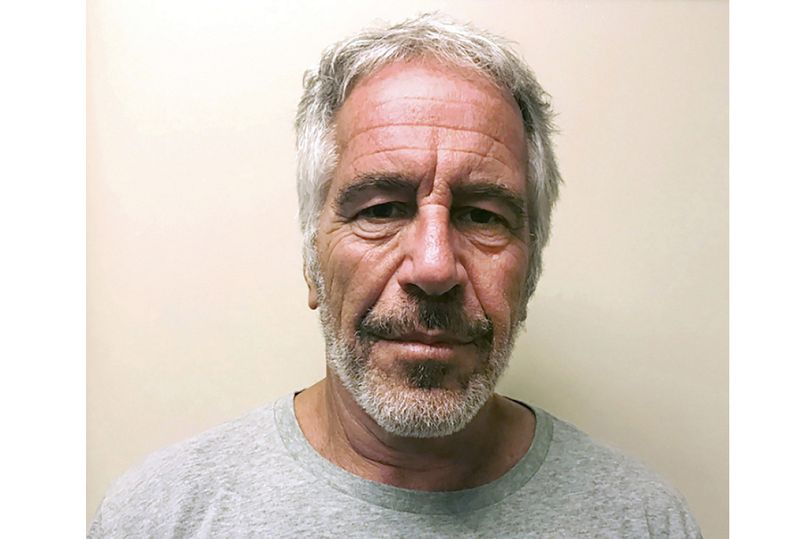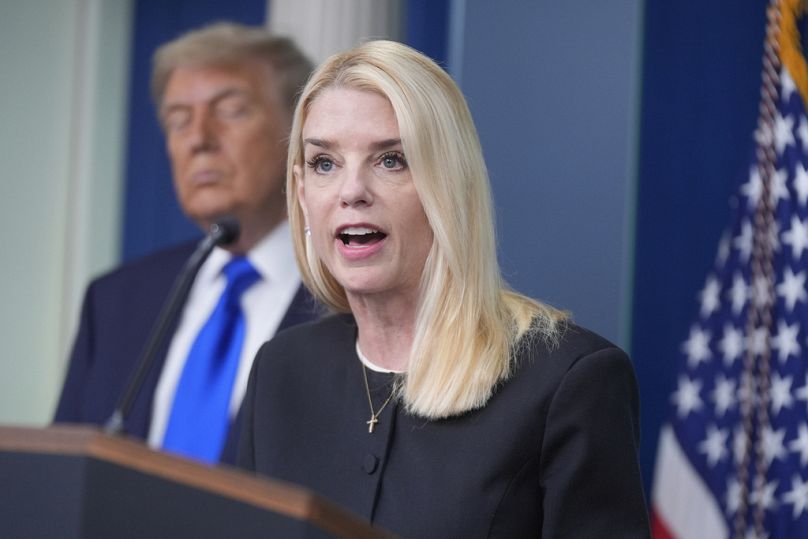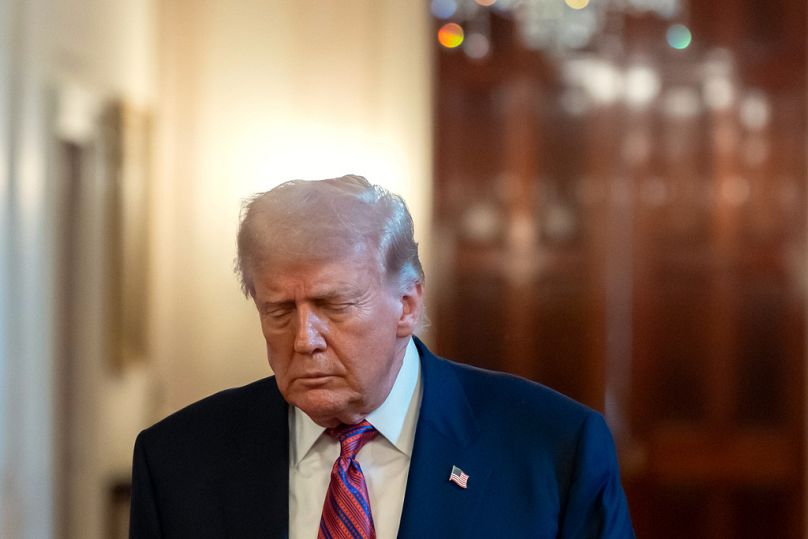The US Justice Department has requested a federal court to unseal secret documents related to disgraced financier Jeffrey Epstein’s case. The Trump administration made the request late on Friday, asking that grand jury transcripts pertaining to the case be made public.
The Justive Department will however not release the thousands of pages related to the case in its possession, which does not require approval or a formal process, and can be made public immediately.
Grand juries decide whether there is enough evidence to bring an indictment, or a formal criminal charge, and their proceedings are secret to protect the reputations of people who end up not being charged and to encourage reluctant witnesses to testify.
Grand jury transcripts — which could show the testimony of witnesses and other evidence presented by prosecutors — are rarely released by courts, unless they need to be disclosed in connection with a judicial proceeding.

Even with the Justice Department endorsement, it could take weeks or months of legal wrangling to decide what can be released and how to protect witnesses and other sensitive victim information.
It’s also unlikely for the transcripts to offer any jaw-dropping revelations to conspiracy theorists obsessed with the Epstein case. The uproar over the Epstein files was never about the grand jury transcripts, but about the thousands of other documents in the government’s possession, which the Trump administration now says it won’t release.
Following the first failed release of Epstein files in February, Bondi said officials were sifting through a “truckload” of previously withheld evidence handed over by the Federal Bureau of Investigation (FBI).
After a monthslong review of evidence, Bondi later announced that her Justice Department determined that “no further disclosure would be appropriate or warranted”. She’s since not fully explained the reasoning behind the decision and largely refused to answer questions on the matter.

The Justice Department's decision to seek grand jury transcripts gives the administration a reason to point to the courts to explain why more material hasn't yet been released, but not releasing other files in their possession is likely to only fuel further conspiracy and increase pressure on the Trump administration.
Trump has been under growing pressure from his loyal base after the US Justice Department announced last week that it would not release any more evidence about the sex trafficking investigation into Epstein, who killed himself while awaiting trial in 2019.
Trump promised in his campaign trail to unseal all records pertaining to the case in an effort to be fully transparent about government goings on. The administration has even stoked conspiracy theories and pledged to uncover government secrets of the “deep state”.

But the surprise decision, announced by Attorney General Pam Bondi did not sit well with supporters of the Republican president, who have accused Trump, who formerly had ties with Epstein, of being personally implicated in the evidence.
The latest development came on Thursday after US media outlet, the Wall Street Journal (WSJ), reported that Trump had written a birthday letter to Epstein, part of a 2003 album for the financier’s 50th birthday, which was sexually suggestive in nature.
“Happy Birthday – and may every day be another wonderful secret” said the letter reportedly bearing Trump’s name, outlined by what appears to be a hand-drawn naked woman, collected by British socialite and Epstein’s former partner, Ghislaine Maxwell.
Trump denied the accusation, insisting he did not write the letter, calling the story “false, malicious and defamatory”. “These are not my words, not the way I talk. Also, I don’t draw pictures,” he added, and promised to take legal action against the WSJ.
In the early hours of Saturday, Trump announced that he had filed a “powerhouse” $10 billion (€8.6 billion) lawsuit against the outlet, accusing its reporters of having “knowingly and recklessly” published false and defamatory articles causing “overwhelming financial and reputational harm”.
The article was also one of the major causes behind Trump’s decision to unseal the court documents of grand jury testimonies in the Epstein case, in a desperate bid to clear his name of any implications or wrongdoing, and mend ties with his base.







